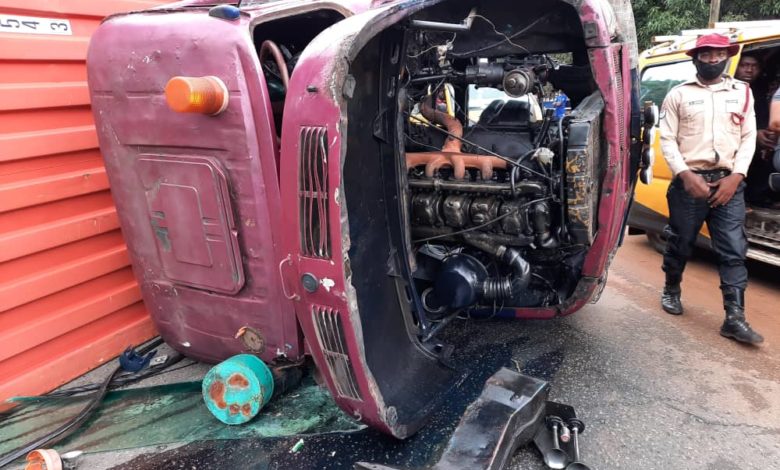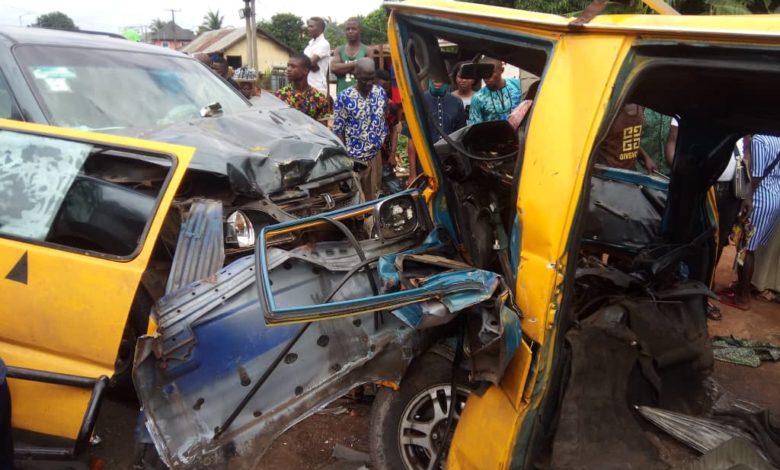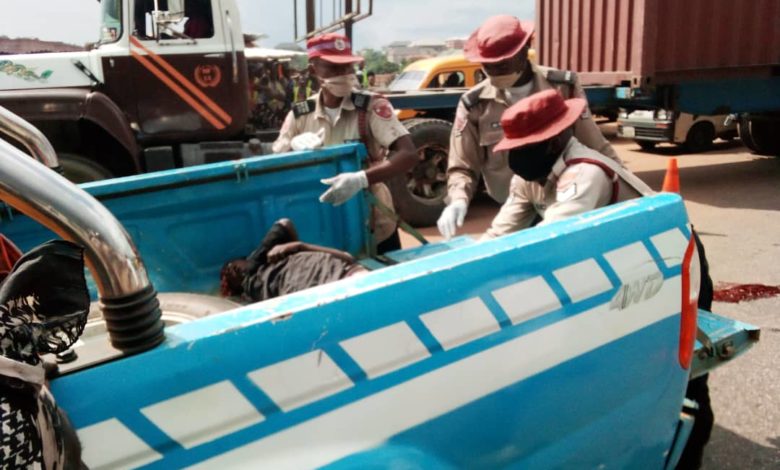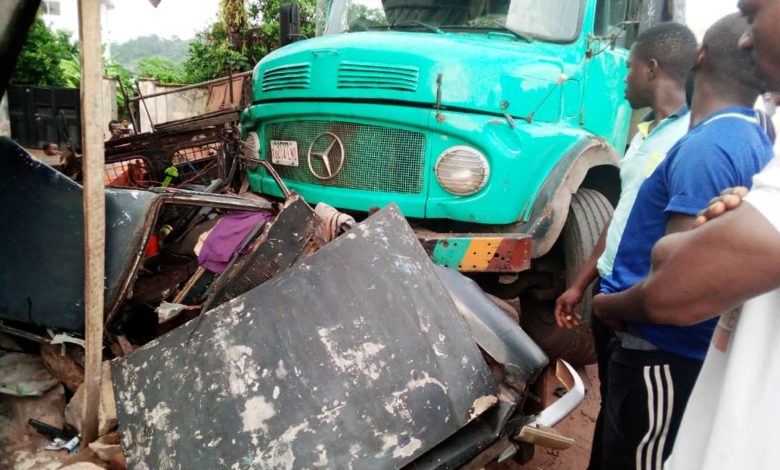Poor Mental Health Of Drivers Responsible For Increased Road Accidents – Experts
Stress arising from social and economic realities are contributing immensely to increased road accidents in Nigeria, some experts say.
The experts spoke to HumAngle in Awka against the background of the road accident record for August, 2020, released by the Federal Road Safety Corps (FRSC), Anambra Sector Command.
They said many drivers on Nigerian roads were mentally unstable because of harsh economic and social realities they faced.
In the report, FRSC stated that it recorded 21 out of 34 road accidents which resulted in injuries and deaths in August based on statistics obtained from the daily traffic update
It stated that no fewer than 10 persons died with 81 others injured out of the 187 persons involved in the accidents.
The agency stated that speeding, wrongful overtaking and loss of control, break failure, route violation as well as fire outbreak and drunk driving were the major factors for the accidents.
On the other hand, bad road was responsible for one incident, while there were also cases of hit and run of pedestrians in their bid to run across the highway, the agency stated.
Prof. Michael Ezenwa, a Clinical Psychologist at Nnamdi Azikiwe University, Awka, blamed the increase in road accidents largely on human factor.
Ezenwa who is the National President of Nigeria Psychological Association, said generally, people were stressed because of a combination of economic and social realities.
He said such factors affected the emotional stability of motorists and hindered their sense of right judgment on the road.
“There has been observed increase in road crashes. This can be partly attributed to economic realities which have left many poorer, like the devaluation of naira, lockdown as a result of the pandemic and increase in prices, including petrol (price).
“There is also crisis like insecurity from insurgency, kidnapping; these are social crises which have brought increase in stress level among people and as a result there is the tendency for them to resort to increased drug for them to adjust or relax.
“Adjusting to drug use makes them to lose control of not just themselves but of their behaviour thereby having a wrong sense of judgement while on the road, stress characteristically engenders poor judgment and less precision,” he said.
Ezenwa said there was a need for intensified public enlightenment and periodic psychological evaluation for drivers.
He said FRSC had helped in mitigating potential carnage on the highway as sight of them awakened some level of self- consciousness among drivers.
“We need more public enlightenment.
Transport companies should insist on periodic psychological evaluation of their drivers.
“Most drivers have personal and family issues which are strong such that they remain active even when they are driving,
“The psychological state of the road user is very crucial to their behaviour on road, it must be assessed at the point of applying for licence and renewal.
“It would have been much worse without FRSC (personnel), their presence has a lot of influence on drivers and their response to crash scenes reduces the effects. That is not to say that there are no bad eggs among them,” he said
Joseph Offor, a transport operator, said three factors were responsible for road accidents, namely vehicular condition, environmental condition (state of roads) and the driver, which should be given equal attention.
Offor said people should conduct simple safety checks on their vehicles regularly before getting on the road.
He agreed with Ezenwa that the driver who determined other variables should be in the right frame of mind at all times.
Mr Andrew Kumapayi, Sector Commander of FRSC in Anambra, said speed and hit and run were largely responsible for the carnage and fatalities on the roads.
Kumapayi said a large section of highway in Anambra was in built up areas and decried motorists’ lack of adherence to 50 km/pH in such areas.
He said the command had commenced mobile speed control patrol to regulate the behaviour of drivers and warned that there would be punishment for offenders.
He said a number of deaths were because of hit and run driving by speeding motorists who knocked down some people who tried to cross the highway rather than use pedestrian bridges.
The sector commander said he had recommended that the state government barricade medians of highways with gauze so that people no longer dash across the road.
“We have commenced mobile speed control patrol to address the issue of speed violation in built up areas, speeding is responsible for most of the crashes that occur.
“The condition of vehicles is also very vital, we have been clamping down on tippers which are responsible for most of the fatal crashes in partnership with the Ministry of Transport.
“Another challenge is stress and fatigue. Some of them (drivers) drive long distances without resting, a trailer and tanker park will help to reduce the incidences of crash.
“Lastly, the state of mind of the driver, we are working with fleet operators to educate their drivers on the need to be fully in charge of their minds while driving,” he said.
Kumapayi advised motorists to indulge in defensive driving for their safety and those of others.
Support Our Journalism
There are millions of ordinary people affected by conflict in Africa whose stories are missing in the mainstream media. HumAngle is determined to tell those challenging and under-reported stories, hoping that the people impacted by these conflicts will find the safety and security they deserve.
To ensure that we continue to provide public service coverage, we have a small favour to ask you. We want you to be part of our journalistic endeavour by contributing a token to us.
Your donation will further promote a robust, free, and independent media.
Donate HereStay Closer To The Stories That Matter








